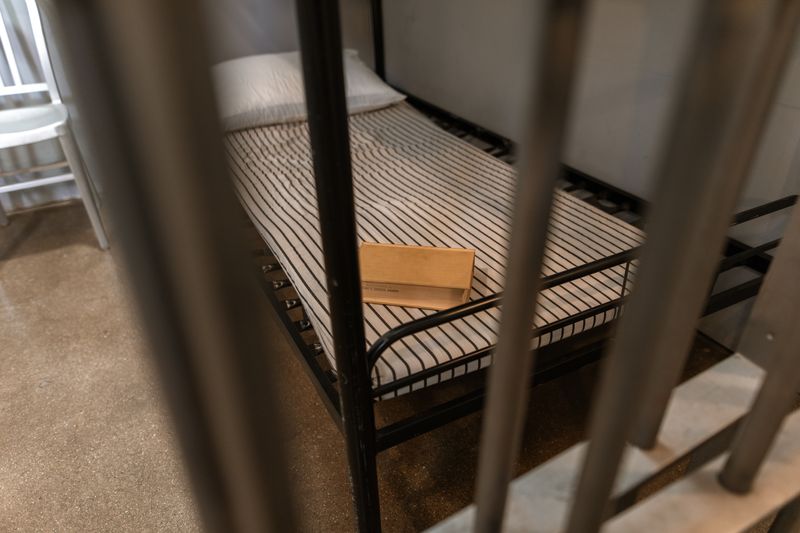Hamas Claims to Have Enough Israeli Captives to Secure Release of Palestinian Prisoners
Introduction
The ongoing Israeli-Palestinian conflict has often been marked by a contentious relationship between the two sides, including the issue of prisoners held by each party. In a recent statement, the Hamas militant group, which governs the Gaza Strip, claimed to possess enough Israeli captives to secure the release of Palestinian prisoners held in Israeli jails. This development raises several important questions about the political, ethical, and legal dimensions of the situation. It also sheds light on the broader dynamics of the Middle East conflict, the treatment of political prisoners, and the overall state of justice and human rights in the region.
The Status of Palestinian Prisoners
The issue of Palestinian prisoners in Israeli jails has long been a point of contention between the two sides. According to human rights organizations, there are currently thousands of Palestinians incarcerated in Israeli prisons, many of them held without charge or trial under administrative detention. These individuals are often subjected to harsh conditions and denied basic rights. The plight of Palestinian prisoners has been a rallying cry for Palestinians, who see their release as a crucial step towards achieving justice and ending the occupation.
Hamas’ Assertion and its Implications
Hamas’ claim that it holds Israeli captives raises serious concerns about the potential consequences of such a development. While Hamas has not provided any specific information about the number or identities of the alleged captives, their statement suggests that they possess significant leverage in negotiations for the release of Palestinian prisoners. This situation opens up a complex ethical dilemma: should hostage-taking or the exchange of captives be considered a legitimate strategy in the pursuit of justice?
Ethical Considerations
The ethics surrounding the exchange of prisoners in conflicts are deeply complex. On one hand, the desire for the release of political prisoners is understandable and aligns with ideas of justice and human rights. On the other hand, engaging in hostage-taking or trading captives sets a dangerous precedent and can further exacerbate tensions between the parties involved. It is essential to consider the long-term consequences of such actions, as they can hinder the prospects for a peaceful resolution and perpetuate cycles of violence.
International Law and Human Rights
From a legal perspective, the taking of hostages is unequivocally condemned under international law. The Fourth Geneva Convention explicitly prohibits hostage-taking, classifying it as a war crime. Additionally, the United Nations Universal Declaration of Human Rights guarantees the right to personal freedom and protection against arbitrary detention. It is crucial for all parties involved, including Hamas and the Israeli government, to adhere to these international legal frameworks and ensure the humane treatment of prisoners.
The Need for Diplomacy and Dialogue
Finding a just and lasting solution to the Israeli-Palestinian conflict requires a comprehensive approach that prioritizes diplomacy and dialogue over violence and coercion. While the issue of prisoners is undoubtedly significant, sustainable peace can only be achieved through respectful negotiations and a commitment to upholding human rights and international law. All parties must recognize the importance of dialogue, compromise, and a genuine willingness to address the underlying issues fueling the conflict.
Conclusion
Hamas’ claim of holding Israeli captives as a means to secure the release of Palestinian prisoners highlights the complex dynamics at play in the Israeli-Palestinian conflict. While the release of political prisoners is an important aspect of justice and human rights, the method advocated by Hamas raises serious ethical and legal concerns. It is imperative for all parties involved to find peaceful avenues for resolving disputes, respecting international law, and prioritizing the well-being of all individuals affected by the conflict.

<< photo by RDNE Stock project >>
The image is for illustrative purposes only and does not depict the actual situation.
You might want to read !
- Hezbollah-Israel Escalation: A Tentative Truce Shattered as Cross-Border Mortar Exchange Prompts IDF Strike
- Lebanon Border Escalation: Hezbollah’s Mortar Attack Met With IDF Retaliation
- Jordan Peterson and the Controversial Call for Netanyahu’s Unleashing: Exploring Backlash and Implications
- “Humanizing Diane: A Call for Fair Treatment”
- How Rape is Utilized as a Weapon in the Conflict-Ridden State of Manipur, India
- The Hidden Dangers: Unveiling Ukraine’s Cluster Bomb Issue
- Justice Served? Examining the Parole Hearing for Jon Venables, Infamous James Bulger Killer
- “Examining the Controversial Parole Hearing of Jon Venables, the Killer of James Bulger”
- The Elusive Escape: Surprising Lack of Sightings for Fugitive Daniel Khalife
- Unabomber Ted Kaczynski’s Death in Prison Raises Questions About Incarceration and Rehabilitation in the US
- Palestinian Demand: Urgent Arab League Meeting in Response to Escalating Israeli Actions
- Unveiling the Shadows: Unraveling the Mystery of Shani Louk’s Tragic Demise




